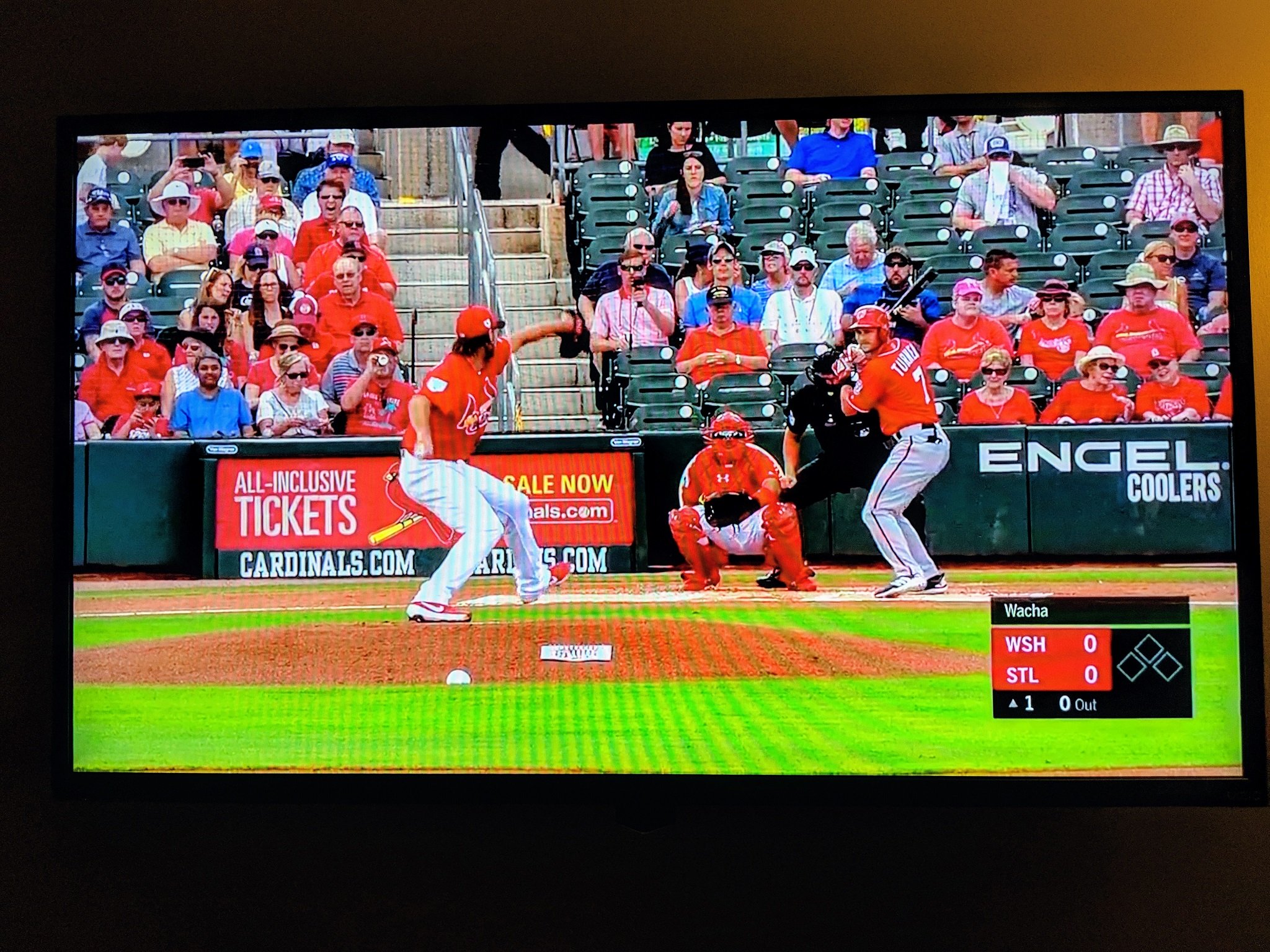MLB streaming shift — Will teams owning local digital rights be a home run for fans without cable?
Stream your favorite ball-game …. even if they're playing nearby?
The latest updates, reviews and unmissable series to watch and more!
You are now subscribed
Your newsletter sign-up was successful
Want to add more newsletters?

ONCE A WEEK
What to Watch
Get all the latest TV news and movie reviews, streaming recommendations and exclusive interviews sent directly to your inbox each week in a newsletter put together by our experts just for you.

ONCE A WEEK
What to Watch Soapbox
Sign up to our new soap newsletter to get all the latest news, spoilers and gossip from the biggest US soaps sent straight to your inbox… so you never miss a moment of the drama!

A small statement from the Major League Baseball commissioner at the league's owners meetings could signal a major change for teams and local fans who want to stream games. As first reported by Hannah Keyser of Yahoo! Sports, Rob Manfred said that MLB had revised their interactive media rights for the "return of certain in-market digital rights … to the clubs". That doesn't sound very exciting, or groundbreaking at first but we should try to cut through the legal speak and look for meaning.
The MLB has been one of the most forward thinking organizations in the area of streaming video. They now offer fans a variety of streaming plans directly from their official MLB.tv service with the ability to watch nearly every out-of-market game online. The "out-of-market" part is the key to understanding what might be changing as a result of the commissioner's statement.
If you lived in a local market for a team, you couldn't stream their games through MLB.tv. Those local games were blacked out on both the All Teams and Single Team plans. I live in Baltimore, and have had the MLB.tv All Teams plan for many years, but I could never watch either Orioles or Washington Nationals games on the service. This is because the in-market (i.e. local) digital rights had been mixed up with the local broadcast rights, usually held by regional sports networks (RSNs).
Relive the moment the Nationals won the World Series by watching the final inning of Game 7.
We are all too familiar with the tangled mess that is regional sports networks on streaming services. Every sports season I spend a few hours updating spreadsheets of which RSN is available on which streaming services in certain plans. You can see the baseball version in the CordCutters guide on watching MLB if you've cut the cord . Sling TV recently removed the Sinclair owned RSNs under the old Fox Sports Net umbrella for a variety of reasons. Plus certain local teams, including the Lakers in the NBA or Dodgers, Nationals and my Orioles in the MLB are not available to stream on any live TV streaming service. Up to now, the only way I could watch most Baltimore Orioles games would be to go back to cable.
So what would it mean for local MLB clubs to hold the rights to in-market digital streaming? They would be able to sell those rights however they see fit. All of this is still in flux, so neither the league nor any team has said exactly what this means, but there are a few possibilities and almost all of them would be good for CordCutters.
The best possible option would be for the league to go wide with a new MLB.tv "Local-Team" package. The league would need to decide on how to price such a package, with the out-of-market Single Team plan currently $92 per season and the All-Teams plan at $120. Hopefully they would also offer the option to bundle a potential Local-Team plan with the All-Team plan for super fans. A plan like this could also be sold through channels marketplaces like Amazon Prime Channels , Apple TV or Google Play.
The latest updates, reviews and unmissable series to watch and more!
See the Best Sports channels on Amazon Prime Video Channels
A far less exciting option would be the simplification of how local games end up on Live TV streaming services like Hulu with Live TV or YouTube TV. This could allow teams, or even the league, to negotiate independent of the RSN partners. Instead of needing to check our grid each season to see which service has your team, MLB could cut deals where you would know that every service offers every team locally.
Additionally, they could work together with the RSNs to sell independent streaming packages outside of either MLB.tv or Live TV streaming services. This would make the least amount of sense, considering the infrastructure they'd need to build instead of leveraging what already exists. However, you should never count out how strange decisions can be made because of money.
The hope for cord-cutters is that this is a big step forward in the movement towards a la carte sports, and that it spreads to other leagues. Lots of fans, including yours truly, have viewed RSNs first as a necessary evil who provided more games that broadcast networks could and then outdated middlemen who complicated our enjoyment of local games.
If MLB is successful in selling local streaming rights and can eventually handle the broadcast production themselves, they may eventually not need the bloated RSN model as it currently exists. If that model looks sustainable, expect other leagues like the NHL or NBA to explore similar options.

A la carte TV with MLB
Amazon Prime Channels lets you pick and choose, including MLB.tv.
Amazon Prime Video Channels gives Prime subscribers the opportunity to select the streaming options they want, and only pay for what they pick. They include live sports options like MLB.tv.
Roy Delgado is a freelance writer for WhatToWatch. His focus is streaming, specializing on sports. He binge-streams 32 games over the first two days of NCAA March Madness annually. He built his own DVR 15 years ago, and still tinkers to make his media setup its best.


